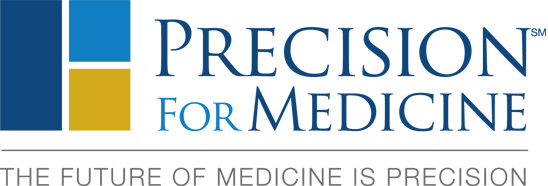Launching a companion diagnostic globally is a complex endeavor that presents unique, and often shifting, challenges – anticipating new companion diagnostic regulations, coordinating with the therapeutic approval strategy, generating locally required data, managing on-the-ground meetings and submissions, aligning efforts with partners and stakeholders, and optimizing timelines while mitigating risk. Here we present the four key building blocks to an effective global companion diagnostic launch: in-country expertise, global data plan, timeline management, and effective communication. In addition, we consider aspects unique to the therapeutic and to the diagnostic, and managing multi-company partnerships. Lastly, we review recent specific updates relevant to global companion diagnostic regulatory programs, such as the launch of the International Medical Device Regulators Forum (IMDRF)’s Regulated Product Submission Table of Contents (RPS ToC) Pilot Program.
Building Blocks of an Effective Global Companion Diagnostic Program
- In-Country Expertise: In the world of companion diagnostic, regulatory requirements are just beginning to take shape, and an effective approval program requires anticipation of the latest on-the-ground reality world-wide. Frequently, local requirements – for example, for clinical sample collection, import/export, or genetic data handling – can impact approval strategies. Access to local knowledge and expertise is thus critical for success.
- Global Data Plan: Data requirements can vary significantly world-wide, and may need to reflect local demographics or regulations, or even be collected in-country. It is key to understand what data will be available when on both the assay and the therapeutic, in which population it was collected, and how it can be leveraged to design an efficient and effective global companion diagnostic program.
- Timeline Management: Although still not explicitly required in many jurisdictions, aligning the therapeutic and assay approval timelines can be important to the commercial success of both products. Bottlenecks can be easy to fall into, as gaps between stated review goals and actual implementation can delay review of one product or the other, and decouple the approval timelines. Real-time tracking of both therapeutic and assay approval timelines, combined with in-country expertise and effective communication, is a key risk mitigation tool to improve the chances of co-approval.
- Effective Communication: companion diagnostic development is a complex endeavor with multiple stakeholders. Shifting this team to the global stage adds further complexity. Aligning expectations, consistently communicating development progress, and ensuring frictionless communication between stakeholders and the latest in-country developments, can ensure that milestones are met, that information is provided promptly, and that all parties can plan appropriately for the long pathway to global approval.
While each of these components is a fundamental building block to an effective global companion diagnostic program, it is the overall context of how they are implemented within the companion diagnostic program team that is key. Assembling these building blocks into an effective program requires anticipating the needs and expectations of all stakeholders, including multiple teams within each development partner. We will review techniques that allow each stakeholder to anticipate the needs of the others, and that can facilitate collaboration and development of a common companion diagnostic framework, such as targeted team training, working group sessions, and building and maintaining a global companion diagnostic dashboard.
Given this foundation, we will then explore specific issues of interest to global companion diagnosticteams. The launch of the International Medical Device Regulators Forum (IMDRF)’s Regulated Product Submission Table of Contents (RPS ToC) Pilot Program, the upcoming IVD Directive in the European Union, and the formation of the Eurasian Economic Union will be discussed as examples of how to leverage in-country expertise to meet program goals.
Participants should leave the webinar with an understanding of what it takes to build and manage an effective global companion diagnostic program, designed to maximize the chance of a successful, coordinated launch of a therapeutic and companion assay world-wide.
Speakers

Austin C. Speier, Director, Emerging Technologies and Markets, Precision for Medicine
Austin C. Speier is the Director of Emerging Technologies and Markets at Precision for Medicine, where he specializes in the design and execution of development and to-market strategies for complex or first-in-class products. In addition, he works closely with early-stage and venture-backed clients to identify and address the most critical scientific, clinical, regulatory, and reimbursement issues on the pathway to market for their products. His experience spans a range of product categories and therapeutic areas, including work with numerous cardiovascular, neurology, wound care, gastroenterology, oncology, drug delivery, women’s health, software, mobile health, diagnostic, and consumer products.
Austin previously conducted research at the Brigham & Women’s Hospital Center for Neurodegeneration and Disease, where he focused on characterizing the molecular and cellular pathology of Alzheimer’s Disease. He holds an AB cum laude in Biology from Harvard College, where he also completed the interdisciplinary Honors Neurobiology program to receive a certificate in Mind, Brain, and Behavior Studies.

Judi Smith, MS, MT(ASCP), Vice President, In Vitro Diagnostics Regulatory and Quality, Precision for Medicine
Judi Smith, MS, is the Vice President, In Vitro Diagnostics Regulatory and Quality, at Precision for Medicine. She has worked in the medical products regulatory submissions and approvals, quality, and clinical trial areas for over 30 years. In her role, she oversees the group responsible for the full range of in vitro diagnostic and blood screening assays (IVDs) services. These include regulatory strategy, analytical, and clinical study designs; protocol development; all FDA pre-market and post-market submissions; quality system establishment and auditing per FDA Quality System Regulation; and clinical laboratory set-up per Clinical Laboratory Improvement Act (CLIA) regulations. In addition, the group provides development and management of clinical trials for these products, the data from which are used in regulatory submissions.
In addition, Judi is a member of the FDA/Industry Roundtable and was awarded the FDA Group Recognition Award. She has served as President of the Association of Medical Diagnostics Manufacturers since 2006. This organization is dedicated to the IVD industry and provides educational programs with FDA’s Center for Devices and Radiological Health Office of In Vitro Diagnostics and Radiological Health. Ms. Smith is also a faculty member of the Regulatory Affairs Professional Society (RAPS) University and serves as a Board Member of RAPS. Judi received her Bachelor of Science from Temple University and her Master of Science from the Medical College of Pennsylvania.
Who Should Attend?
- Pharma, Biotech and Diagnostic Manufacturers
- VP or Director, Global Regulatory Affairs
- VP or Director, Companion Diagnostics
- VP or Director, Strategic Partnerships/Alliances
Xtalks Partner
Precision for Medicine
Precision for Medicine is a specialized service provider engineered specifically to address the emerging needs of next generation life science companies. We understand the new challenges and opportunities posed by the modern health care market and offer a combination of expertise, scientific infrastructure, and organizational scale to help guide products from development, through regulatory review, to market introduction and commercial success. Today Precision has more than 475 employees across 13 campuses.
Media Partner
You Must Login To Register for this Free Webinar
Already have an account? LOGIN HERE. If you don’t have an account you need to create a free account.
Create Account
